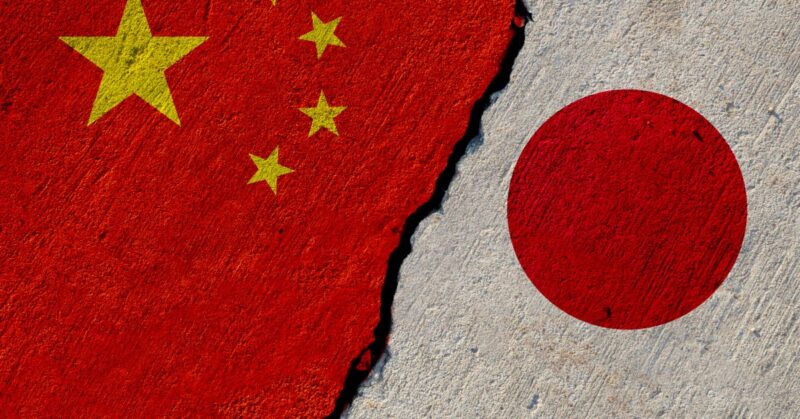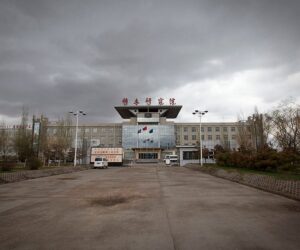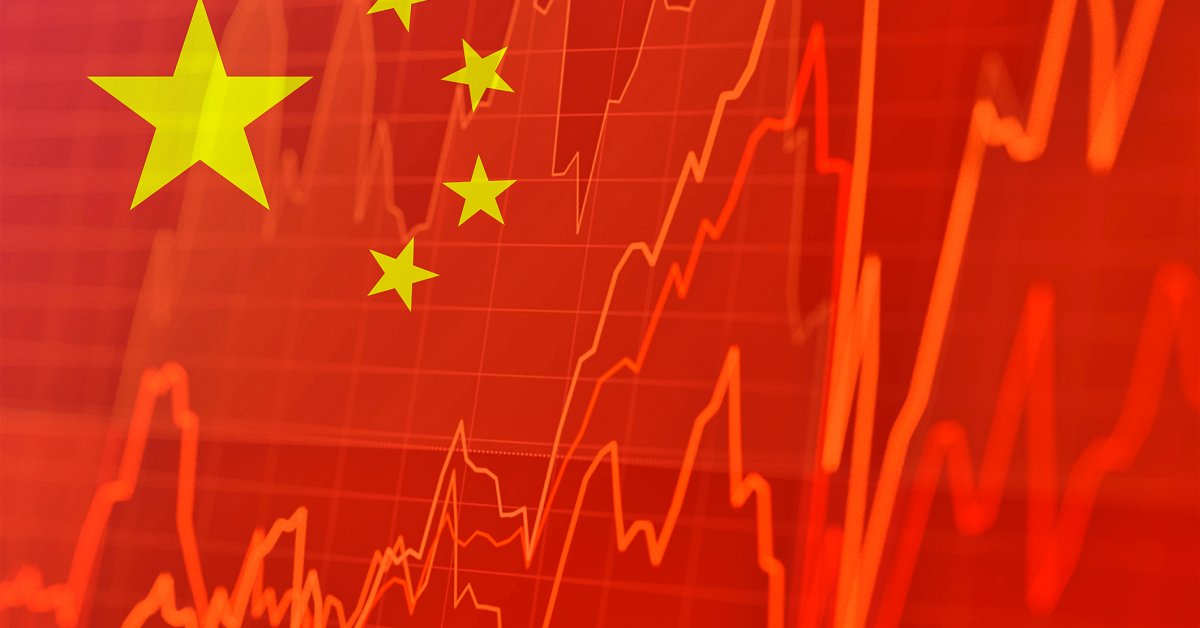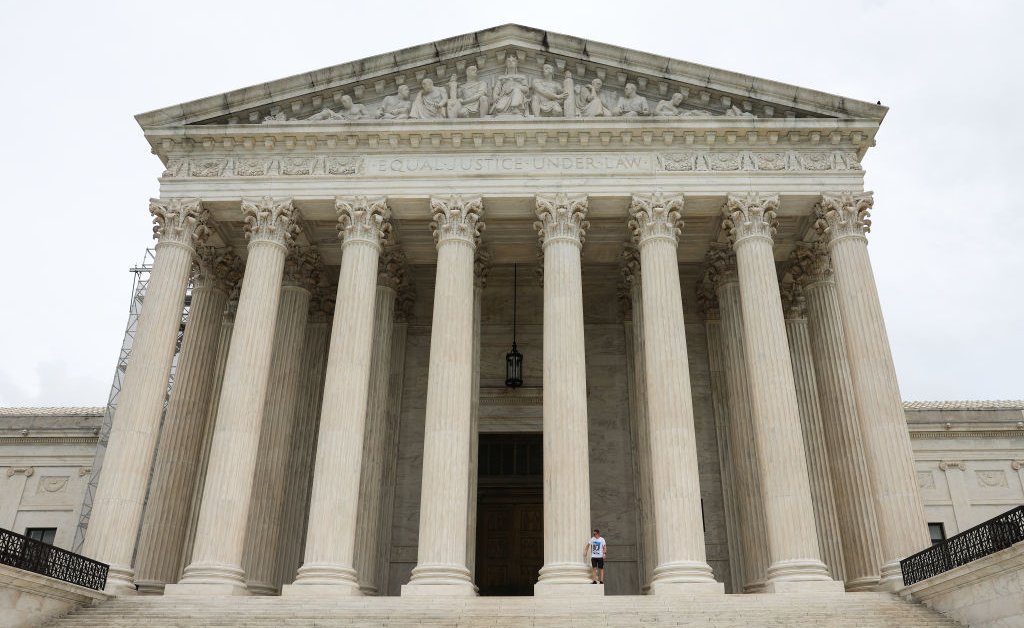China and Japan have been locked in a diplomatic spat that could come at a heavy cost to both sides.
On Nov. 7, Japanese Prime Minister Sanae Takaichi suggested that an attack on Taiwan could constitute an existential threat to Japan and warrant a forceful response, prompting strong condemnation from Beijing. China has imposed a slew of economic measures that appear aimed at Japan, as its Commerce Ministry said Takaichi’s comments have “severely damaged” trade cooperation between the two countries. China claims sovereignty over the self-governed island of Taiwan and maintains the right to take control of it by force if necessary.
Tensions thus far show no sign of abating, with China sending a letter to the U.N. promising self-defense if Japan “dared to intervene militarily in the Taiwan Strait,” drawing criticism from Tokyo. On Friday, the Chinese embassy in Japan also posted on X that China has the “right to take direct military action” without U.N. Security Council authorization if Japan “takes any step to once again implement a policy of aggression. Takaichi for her part has refused to cave to pressure to retract her remarks, noting that they were consistent with Japan’s long-held position, while Japanese officials have sought to cool tensions through dialogue.
The consequences of the fallout could be devastating for Japan, whose biggest trading partner is China. But as the dispute drags out, China could also lose out, experts say.
China pulls economic levers
The spat erupted less than two weeks after Takaichi met with Chinese President Xi Jinping in what both sides said affirmed bilateral ties between the neighboring countries.
Subramania Bhatt, chief executive officer of market researcher China Trading Desk, tells TIME that China has been able to exert economic pressure on Japan in several different areas, from fisheries to pop culture. China reimposed a ban on Japanese seafood imports after partially lifting it earlier this year in what had been a show of warming relations. Several Japanese artists have reportedly had their upcoming concerts in Beijing abruptly canceled or postponed. And at least two Japanese movies—“Crayon Shin-chan the Movie: Super Hot! The Spicy Kasukabe Dancers” and “Cells at Work!”—have had their releases postponed in mainland China, apparently in response to Chinese viewers’ lack of appetite for Japanese media amid dissatisfaction over Takaichi’s remarks, even as Japan’s “Demon Slayer: Infinity Castle” dominates China’s box office.
Some businesses with investments in China, like Toyota and Sony, also “fear direct blowback on their China plants and supply chains,” Bhatt adds. But all these moves, he says, are “like sharp pinpricks” rather than “a knockout blow.”
Meanwhile, China has also advised its citizens against travelling to Japan, citing a rise in sinophobic attacks and crime, which Japan has denied. China Trading Desk estimates that around 30% of the 1.44 million trips from China to Japan till the end of December have been cancelled, according to Bloomberg. Several Chinese airlines have offered customers free cancellations and changes on their itineraries, and some have reduced the number of flights going to Japan.
The loss of Chinese tourism could cost Japan between $500 million and $1.2 billion from now till the end of the year, according to the market researcher, which looked at estimates of Chinese tourists’ spending in Japan and overseas.
Some in Japan may welcome China’s “self-imposed tourist restrictions,” says Sean King, senior vice president for consulting firm Park Strategies, which represents Almonty, a producer of tungsten—a critical mineral that is sometimes grouped with rare earths. Thus far, public reaction to the drop in tourism appears to be muted as some feel a “cynicism that Chinese tourists would stop coming to Japan,” says Paul Nadeau, an adjunct assistant professor at Temple University’s Japan campus and co-founder and editor of the Tokyo Review.
Japan has seen an influx of Chinese tourists in recent years as former Prime Minister Shinzo Abe oversaw an effort to increase inbound tourism. Chinese visitors account for a quarter of annual visitors and nearly a third of total inbound consumption from July to September, according to Japan’s tourism data. But the record levels of tourism have also taken a toll on the public, which has complained about rising costs-of-living and misbehavior by foreigners, and stirred up xenophobic sentiments.
“The Japanese public in general seems careless or even welcoming in some cases about having less Chinese tourists,” says Tokuko Shironitta, managing director for Japan at strategic advisory firm the Asia Group.
For many Japanese businesses, however, “losing a big slice of high-spending Chinese visitors is far more painful than any short-term relief from overcrowded streets,” Bhatt says. “We may hear some quiet satisfaction in over touristed neighbourhoods, but for most local economies the hit to jobs and revenues will outweigh any ‘benefit’ from having fewer Chinese tour groups.”
There are still more cards China can play, like restricting investments, imposing anti-dumping measures, or launching trade remedy investigations, says Shironitta. If China goes too far—such as by detaining Japanese citizens in China or restricting Japanese companies’ operations in China—Japan may be forced to respond with countermeasures, which it has so far avoided doing, Shironitta adds.
But Japan has “no bargaining chips” over China, says Li Hao, an associate professor at the University of Tokyo and a research fellow at the Japan Institute of International Affairs.
“China remains a massive market for Japanese firms and China knows they have more leverage over Japan,” says Nadeau. “Historically, leaders have been able to step back from similar crises though quiet negotiations or other steps, but China seems willing to escalate for now and I’m not sure what steps they want from Japan that could get the relationship back to status quo ante.”
Japan has so far protested diplomatically and mostly sought to resolve the dispute behind-the-scenes in an effort to avoid escalating the situation further.
At the same time, though, Japan is “quietly accelerating efforts to diversify away from dependence on Chinese demand,” Bhatt says. The longer the dispute drags on—especially in the public eye—the more motivated Japan would be to ‘de-risk,’ such as by subsidizing companies to move supply chains out of China and tightening export controls on semiconductors, he adds.
“Over time, the Japanese public and businesses are likely to take the uncertainties surrounding economic interactions with China more seriously,” says Kei Koga, an associate professor at Singapore-based Nanyang Technological University’s Public Policy and Global Affairs Program. “In the longer term, this will likely lead to greater efforts to de-risk Japan’s economic ties with China.”
A critical piece of leverage
Beijing has yet to play perhaps its most powerful hand: its supply of rare earths to Japan.
“China controls the full rare-earth value chain and uses traceability systems, making it hard to bypass Chinese processing even via third countries,” Bhatt says. “Rare-earth controls are both an economic and political tool; further ‘provocations’ on Taiwan could trigger targeted restrictions,” which could severely hamper some of Japan’s key industries.
Japan’s high-tech industries—including electronic vehicles, electronics, and defence—rely on Chinese rare earths, even as the country has managed to reduce that dependence from 90% in 2010 to around 60%. China has restricted rare earths to Japan before in 2010 in response to the detention of a Chinese fishing boat captain near the disputed Senkaku/Diaoyu Islands.
However, Li tells TIME it’s not likely that Beijing will do that now given that Chinese global export controls of rare earths came under worldwide scrutiny just last month in the lead-up to a highly-anticipated meeting between Xi and U.S. President Donald Trump.
“The rare earth case is deeply connected to Sino-U.S. relations,” Li says. Although such a curb would have a huge impact on Japan, it would destroy “mutual trust,” Li says, not only between the two countries but also between China and the rest of the world. Japan also recently signed an agreement with the U.S. to extract rare earths in the Pacific with the aim of reducing their reliance on Chinese rare earths.
“Other countries would try to diversify their imports of rare earths and try to produce rare earths themselves,” Li says, which would weaken China’s position in the long term.
Stronger at home, weaker abroad
Takaichi, who has a reputation as a China hawk, could also see her popularity go up within Japan.
“More overreaction by China is going to result in stronger anti-China sentiment in Japan,” says Shironitta.
A Nov. 16 Kyodo news agency poll showed that 69.9% of the public approved of Takaichi’s Administration, an increase of 5.5 percentage points since shortly after she took office at the end of October. At the same time, 48.8% of respondents supported Japan’s right to exercise collective self-defense if Taiwan is attacked, compared with 44.2% that did not.
“Takaichi’s firm position has portrayed her as a strong leader domestically,” says Koga.
“Japanese voters are sure to appreciate Takaichi’s standing up for their country’s obvious interests and are thus more likely to look favorably on her attempts to beef up Japan’s defenses,” King adds. Takaichi has championed increasing Japan’s defense spending and strengthening its security to counter China’s military build-up and align Japan with Trump’s position.
In the face of China’s retaliation, Japan’s defense minister Shinjiro Koizumi said his government will go through with its plan to deploy missiles to a base near Taiwan. Taiwan has also taken the opportunity to show its support for Japan by lifting all restrictions on Japanese food imports.
Even so, experts warn that the costs to Japan in the short- and medium-term outweigh the boost to Takaichi’s domestic popularity.
“Paradoxically, the ordeal also shows the limits of being a China hawk since it’s difficult to translate those positions into policy—raising defense spending means spending cuts or higher taxes, leaning on the United States means either escalating the ordeal or suggesting cracks in the alliance if the United States stands pat, and retaliatory economic coercion is limited,” says Nadeau. “All of those choices remain available and possible for Japan, but they’re difficult steps that need considerable political and diplomatic capital.”
“While Takaichi is riding high after a month in office and has some examples of successful diplomacy, she’s still managing a minority government that could crumble if the opposition or public detect any missteps,” he adds.
For China, too, there are costs as the dispute sours relations between two governments that have worked their way towards friendlier ties—albeit with many dips over the years—and comes at a time when China has sought to establish itself as a flagbearer of multilateralism and an alternative global leader to the U.S.
Chinese leaders “may be hoping that Takaichi and future leaders ‘stick to the script’ on Taiwan,” Nadeau says, but “Japan’s public will probably resent the coercion that brought the relationship to this point, and it’s possible that China’s steps here are self-defeating.”
“The relationship is drifting away from the old pattern of ‘cold politics, hot economics’ toward something closer to ‘cold politics, cooler economics,’” says Bhatt, adding that Japan may be nudged “further into the orbit of U.S.-led economic and security coalitions.”
U.S. State Department spokesperson Tommy Pigott reaffirmed the U.S.’s commitment to Japanese security in a Thursday post on X.
“Our commitment to the U.S.-Japan Alliance and to Japan’s defense, including the Japan-administered Senkakus, is unwavering,” Pigott said. “We firmly oppose any unilateral attempts to change the status quo, including through force or coercion, in the Taiwan Strait, East China Sea, or South China Sea.”
In his first meeting with Takaichi last month, Trump offered her “anything you want, any favors you need, anything … to help Japan.” If that offer still stands, Japan may have more cards to play.








